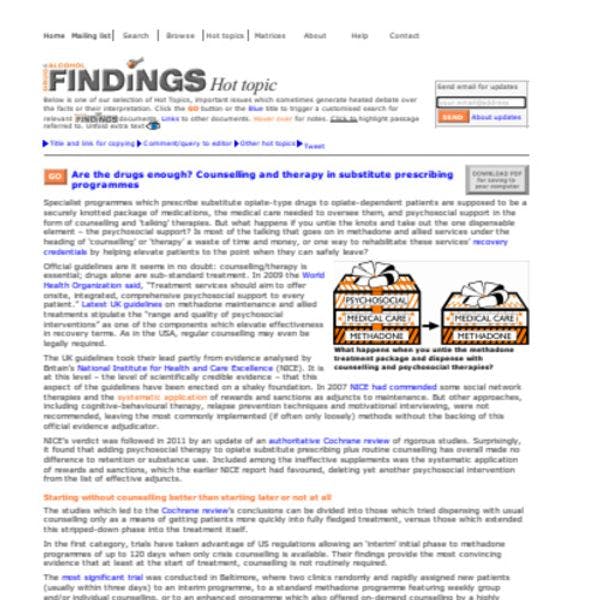Are the drugs enough? Counselling and therapy in substitute prescribing programmes
Specialist programmes which prescribe substitute opiate-type drugs to opiate-dependent patients are supposed to be a securely knotted package of medications, the medical care needed to oversee them, and psychosocial support in the form of counselling and ‘talking’ therapies. But what happens if you untie the knots and take out the one dispensable element – the psychosocial support? Is most of the talking that goes on in methadone and allied services under the heading of ‘counselling’ or ‘therapy’ a waste of time and money, or one way to rehabilitate these services’ recovery credentials by helping elevate patients to the point when they can safely leave?
Official guidelines are it seems in no doubt: counselling/therapy is essential; drugs alone are sub-standard treatment. In 2009 the World Health Organization said, “Treatment services should aim to offer onsite, integrated, comprehensive psychosocial support to every patient.” Latest UK guidelines on methadone maintenance and allied treatments stipulate the “range and quality of psychosocial interventions” as one of the components which elevate effectiveness in recovery terms. As in the USA, regular counselling may even be legally required.
Keep up-to-date with drug policy developments by subscribing to the IDPC Monthly Alert.
